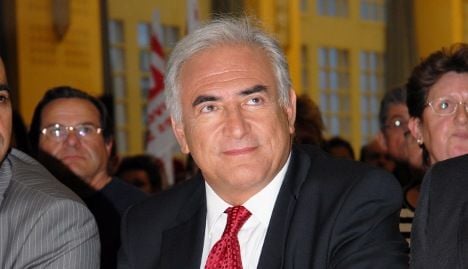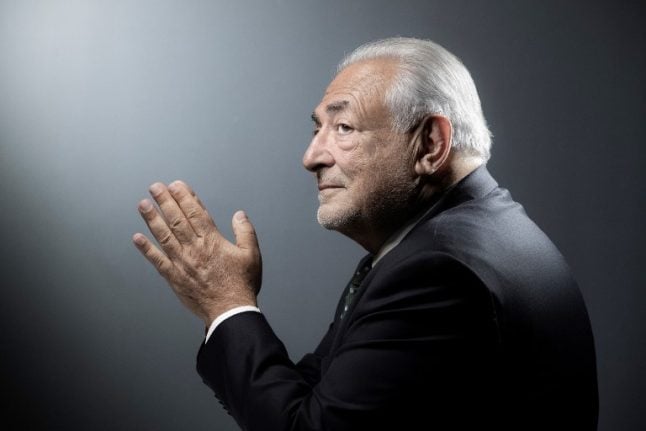The former IMF chief and his journalist wife Anne Sinclair arrived at dawn at Charles de Gaulle airport on an Air France flight and were whisked off in a black Peugeot to their apartment in the chic Place des Vosges.
They smiled and waved but said nothing to the horde of journalists and handful of supporters awaiting their arrival at the airport and again declined to comment when mobbed by media as they reached their home in the Marais area of Paris.
Strauss-Kahn has promised to talk about what he has called his “terrible and unjust ordeal.”
“Today it’s family, family, family,” a close associate of the former IMF chief told AFP, adding that he would later prepare “a strong message” for broadcast.
Michelle Sabban, a senior figure in the Socialist Party in the Paris region, said Strauss-Kahn would not just disappear into the political shadows.
“The rehabilitation must be as big as the humiliation suffered,” he said.
Strauss-Kahn, dressed in a dark suit and white shirt, boarded a flight at New York’s JFK airport late on Saturday, less than two weeks after sexual assault charges against him were dropped.
Three and a half months ago police hauled the Socialist politician off a plane that was about to leave for Paris from the same airport and charged him with the sexual assault and attempted rape of the hotel maid Nafissatou Diallo.
The 62-year-old spent nearly a week in jail and was then put under house arrest for six weeks and barred from leaving the United States. He was also forced to resign as the International Monetary Fund’s managing director.
But late last month he walked free when a judge dismissed the charges against him after prosecutors said they could not pursue the case because of his accuser’s lack of credibility.
Prosecutors said she had been caught lying on her asylum application form, including about a gang rape she had suffered in her native Guinea.
DNA evidence indicated that a sexual encounter did occur between the two in the Sofitel hotel in Manhattan, but Strauss-Kahn’s defence team insists that it was consensual.
The ex-IMF chief’s legal travails are however far from over.
Diallo is pursuing a civil suit against him, seeking unspecified damages, while in France, 32-year-old novelist Tristane Banon has filed a complaint alleging he tried to rape her after luring her to a Paris flat in 2003.
He has said he will sue Banon for defamation, alleging she invented the story to help publicise her writing.
Banon’s mother, Anne Mansouret said on Sunday that the media storm surrounding Strauss-Kahn’s homecoming was “indecent”.
Chantal Brunel, the head of France’s national watchdog on sexual equality, said Strauss-Kahn would remain “an indelible stain on the Socialist party”.
The return of Strauss-Kahn — who before the sex scandal was tipped as a possible favorite to win the presidential election — has sparked unease in his party which is holding a primary to pick a candidate for the 2012 vote.
Party heavyweights have welcomed the withdrawal of charges against him, but many have sought to distance themselves from him.
Socialist leader Martine Aubry said on Tuesday she had always insisted that Strauss-Kahn, who was a finance minister in a previous Socialist government in France, benefit from the presumption of innocence.
But she notably added: “I think the same as many women about the attitude of Dominique Strauss-Kahn to women.”
Michel Rocard, a Socialist former prime minister, went even further in calling his character into question, saying that the former IMF boss suffered from a “mental illness” and could not control his urges around women.
Rocard later apologised for the statement.
Strauss-Kahn has not stated what his plans are once back in Paris but many commentators expect him to have some sort of role in next year’s election campaign.
Sarkozy is languishing in opinion polls and the French economy is flatlining, so whichever Socialist emerges from the primary ought to be in with a chance.
But the party has been left in disarray by the spectacular burnout of its former hero Strauss-Kahn.



 Please whitelist us to continue reading.
Please whitelist us to continue reading.
Member comments